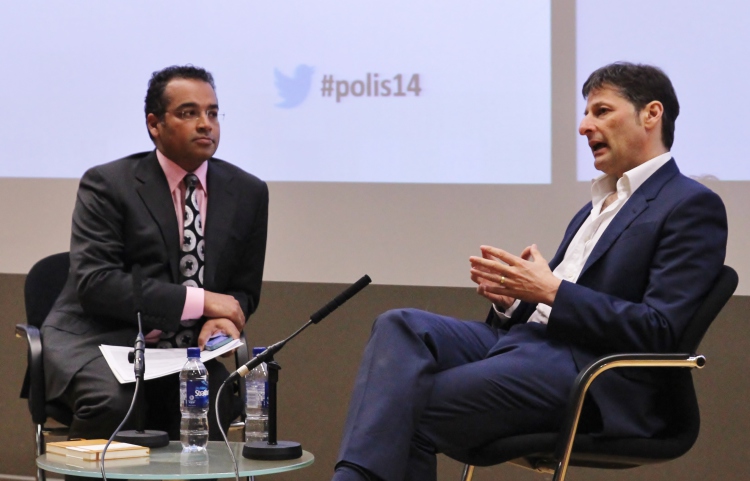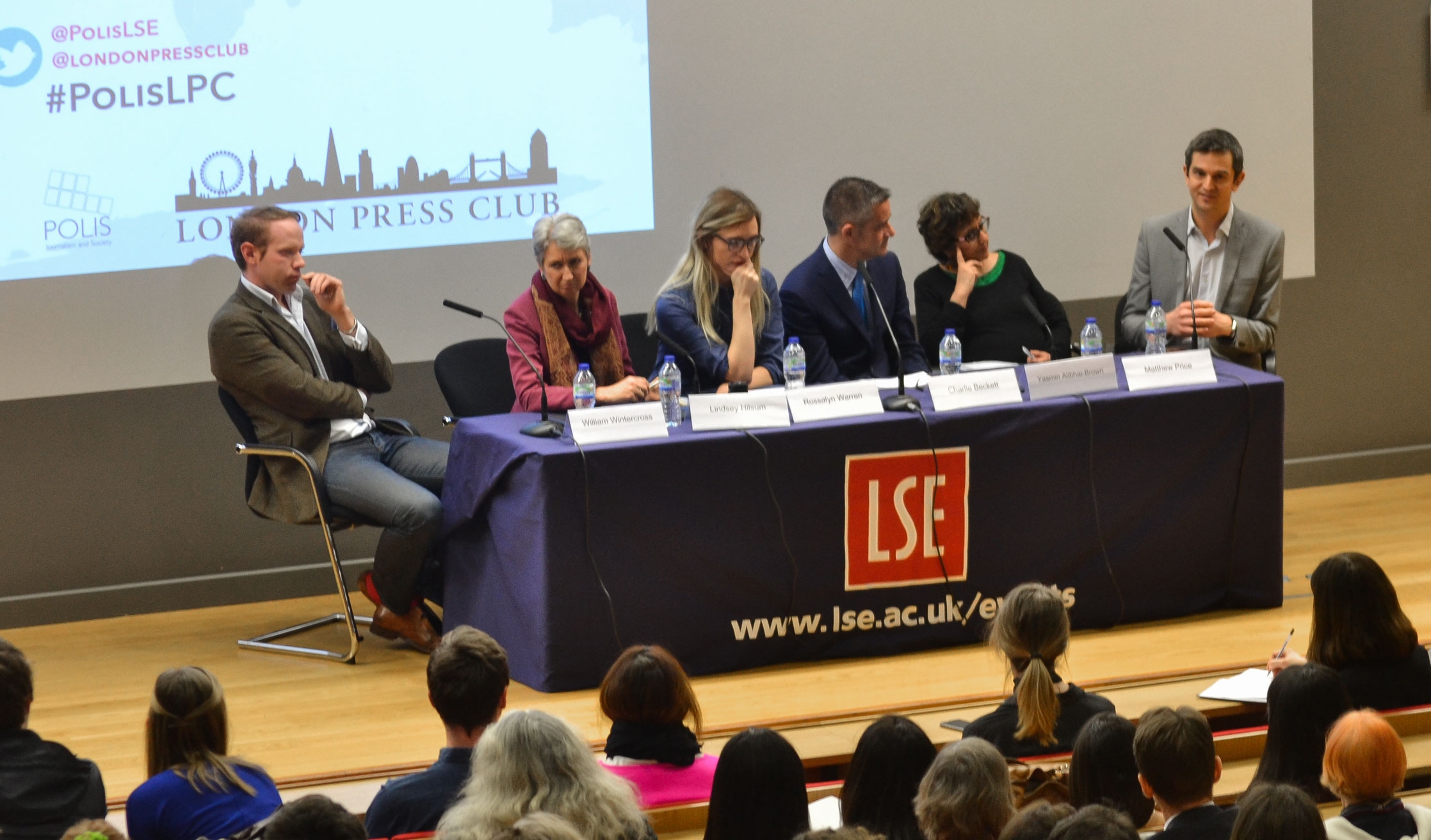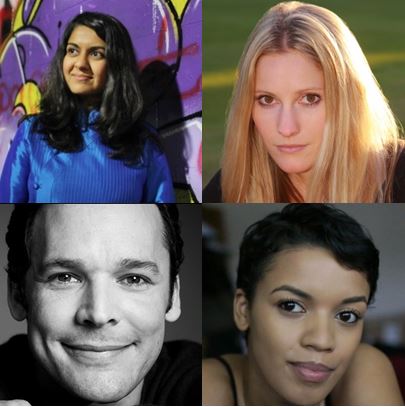On 20 February Charlie Beckett, Director of Polis, led a discussion with Stig Abell and Jim Waterson on the state of traditional news media. Listen to the discussion below.
Part 1
Stig Abell, Editor of the Times Literary Supplement
“The print model has completely changed beyond recognition over the last ten years. It used to be a license to print money, now it’s Facebook and google that have that license.”
“The Daily Mail is effectively a large US celebrity website with a small British print arm.”
“Newspapers were once monolithic institutions that shouted at their readers.”
Part 2
Jim Waterson, Politics Editor at BuzzFeed UK
“I read everything. I don’t think there’s ever been a better time for reading brilliant journalism, for free. There’s also never been so much dross around.”
“When I joined BuzzFeed, I was considered mad for going somewhere that published online-only.”
Part 3
Stig Abell
“It’s hard to overstate the influence of Facebook on the media landscape; it’s like crack-cocaine for newspaper companies.”
“‘Fake news’ is now a catch-all shriek for ‘I don’t agree with you’.”
Jim Waterson
“The really scary thing is that the distribution of news is based on a lot of people trying to second guess an algorithm.”
“We discovered if you put ‘actually’ in the headline, your click rate went up by a third.”
Questions from the audience
What effect do you think the loss of local papers will have on journalism?
Can you apply the existing challenges facing newspaper journalism to magazines?
Do you see news as being a version of soft power in the future?
As the British traditional press declines, how much do you think this contributes to the erosion of a national identity?
In 2016 a new national newspaper – the New Day – opened. Why do you think it failed?
How does BuzzFeed’s quality political journalism overcome the stigma of also publishing ’17 cute pictures of dogs in Halloween costumes’?
Thanks for listening.









